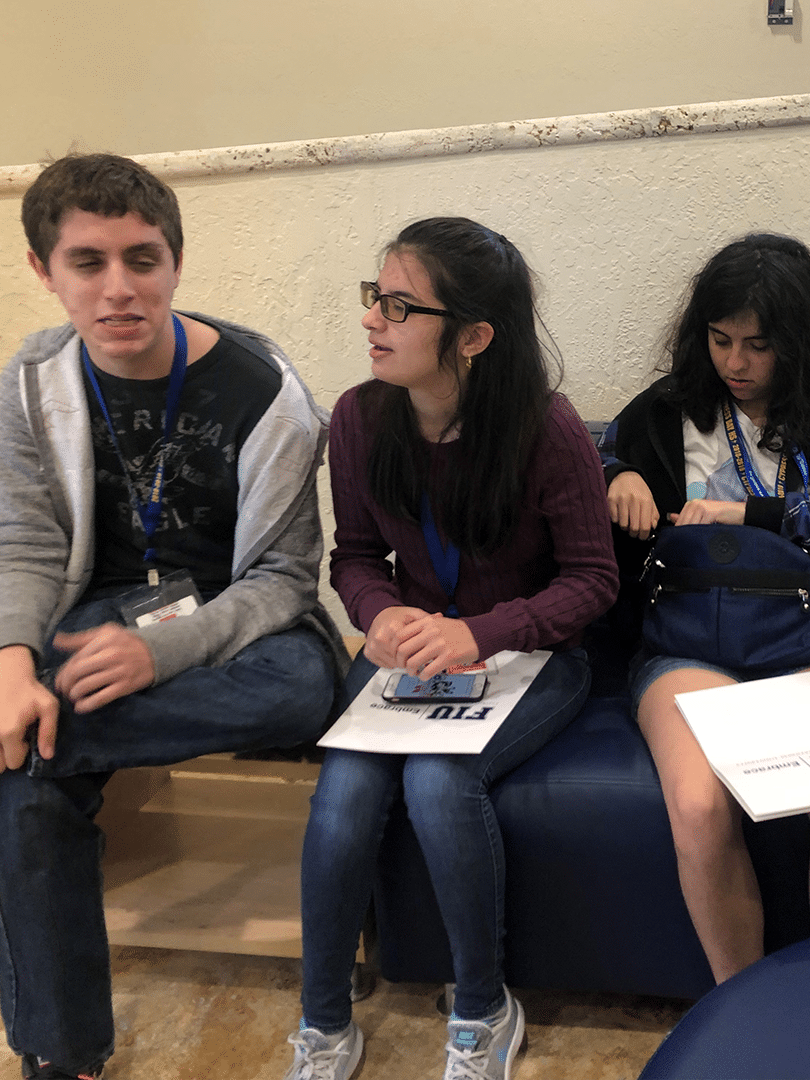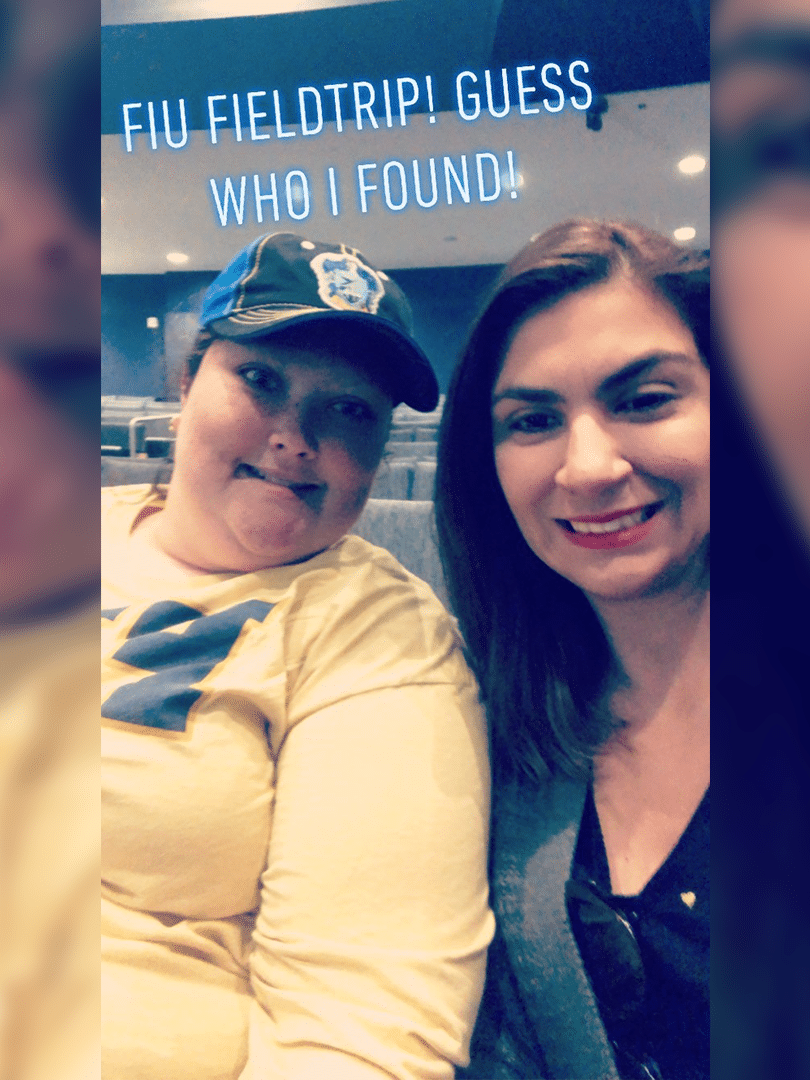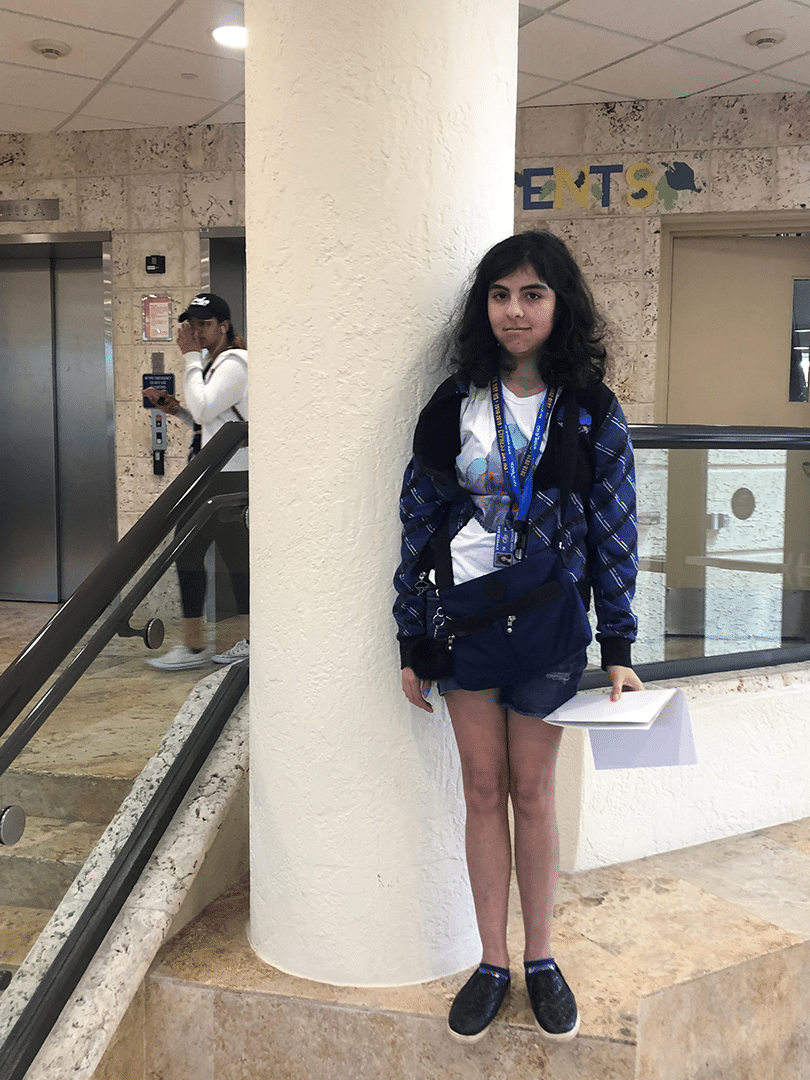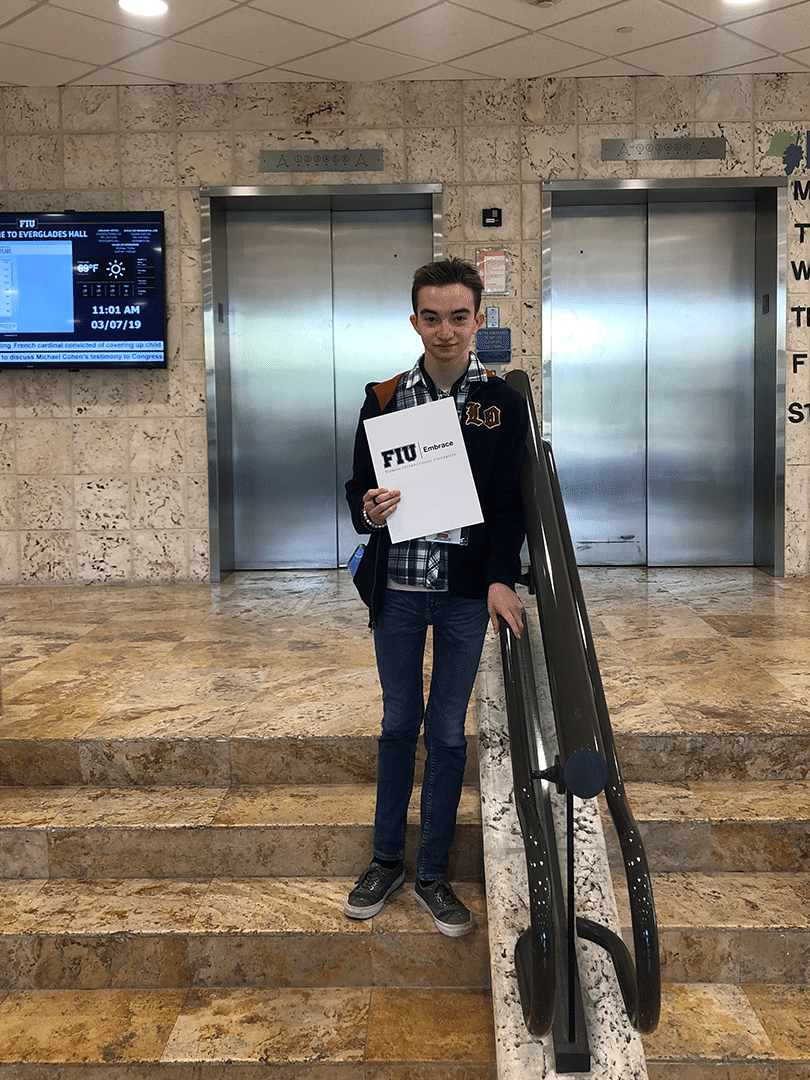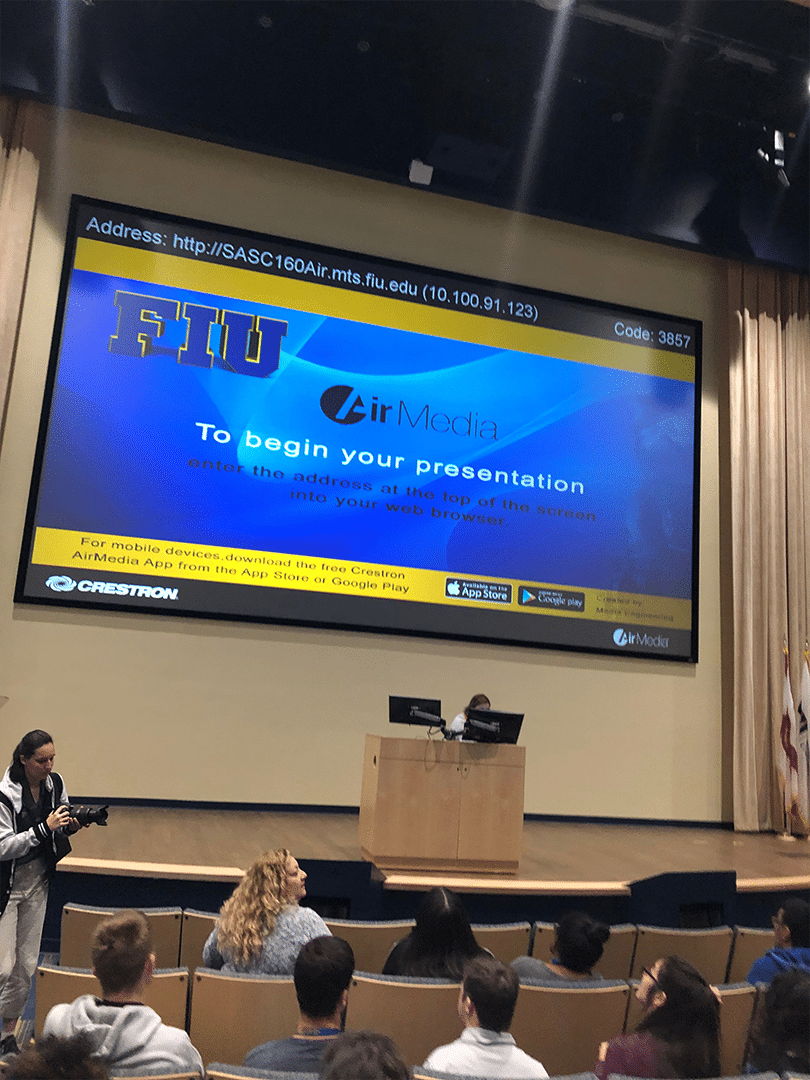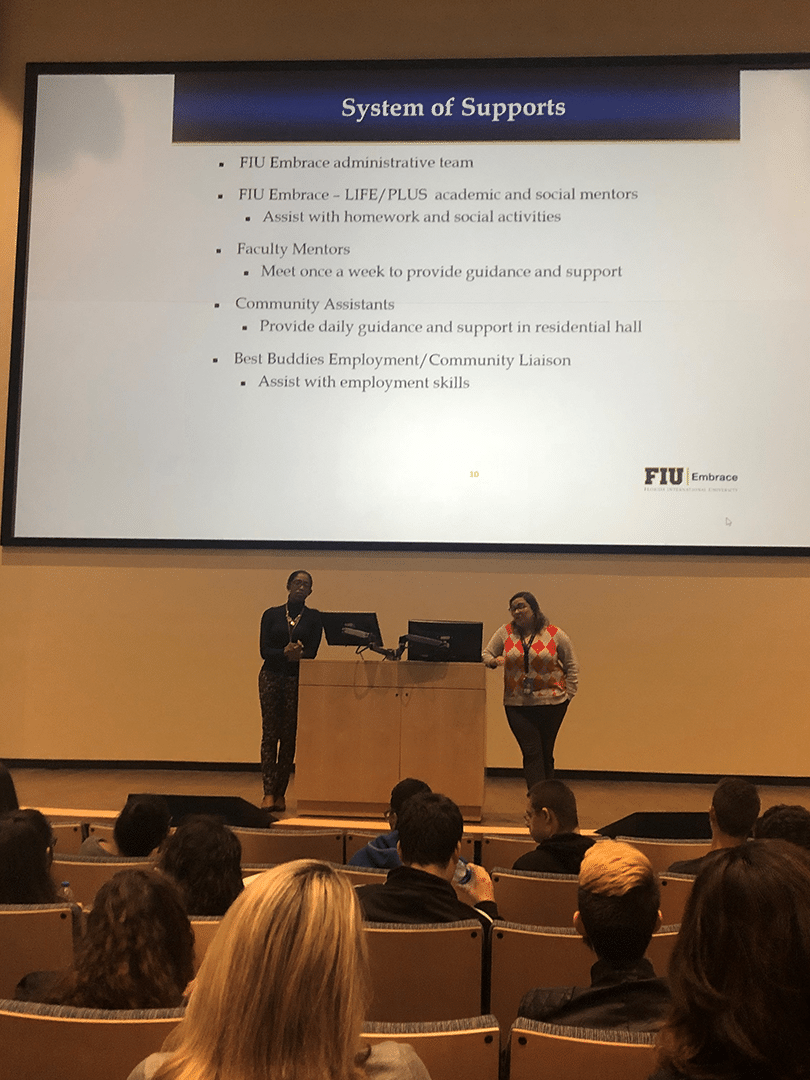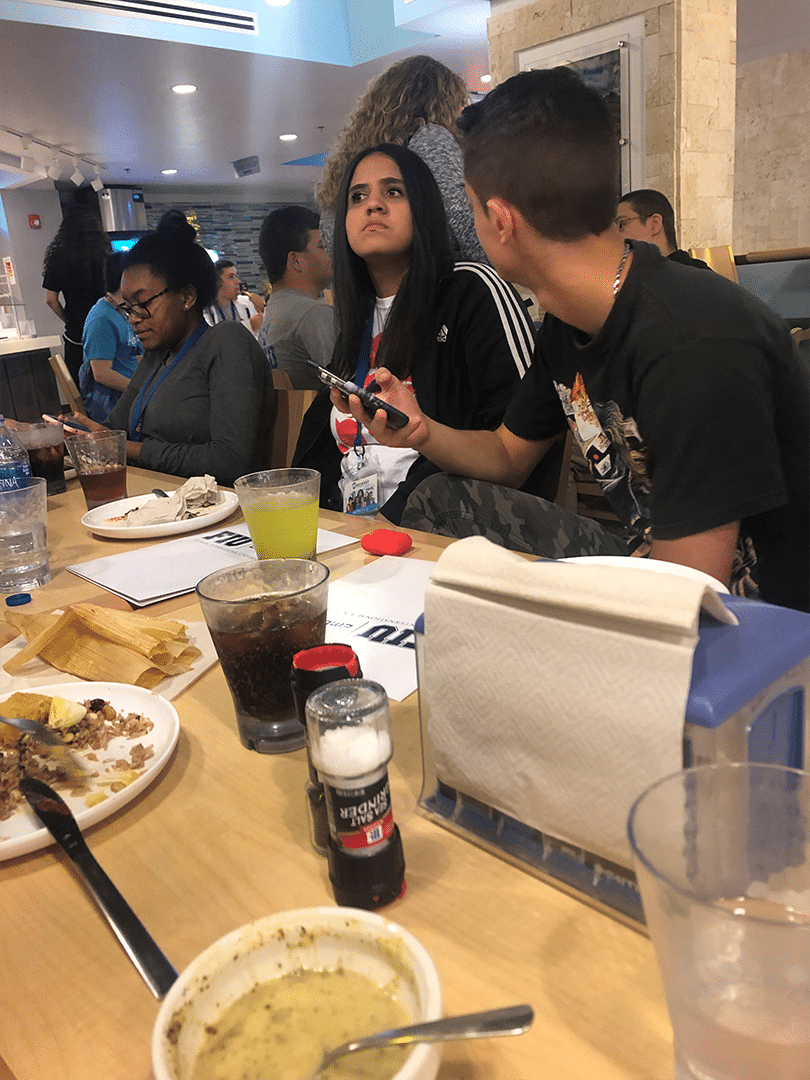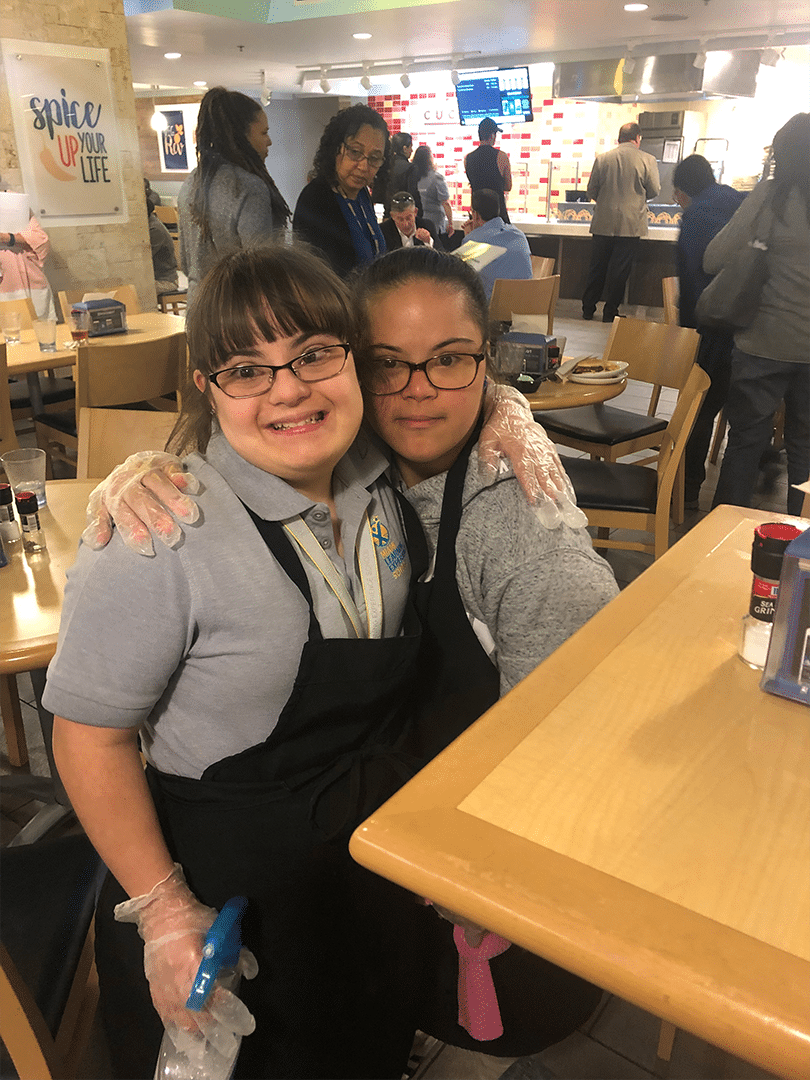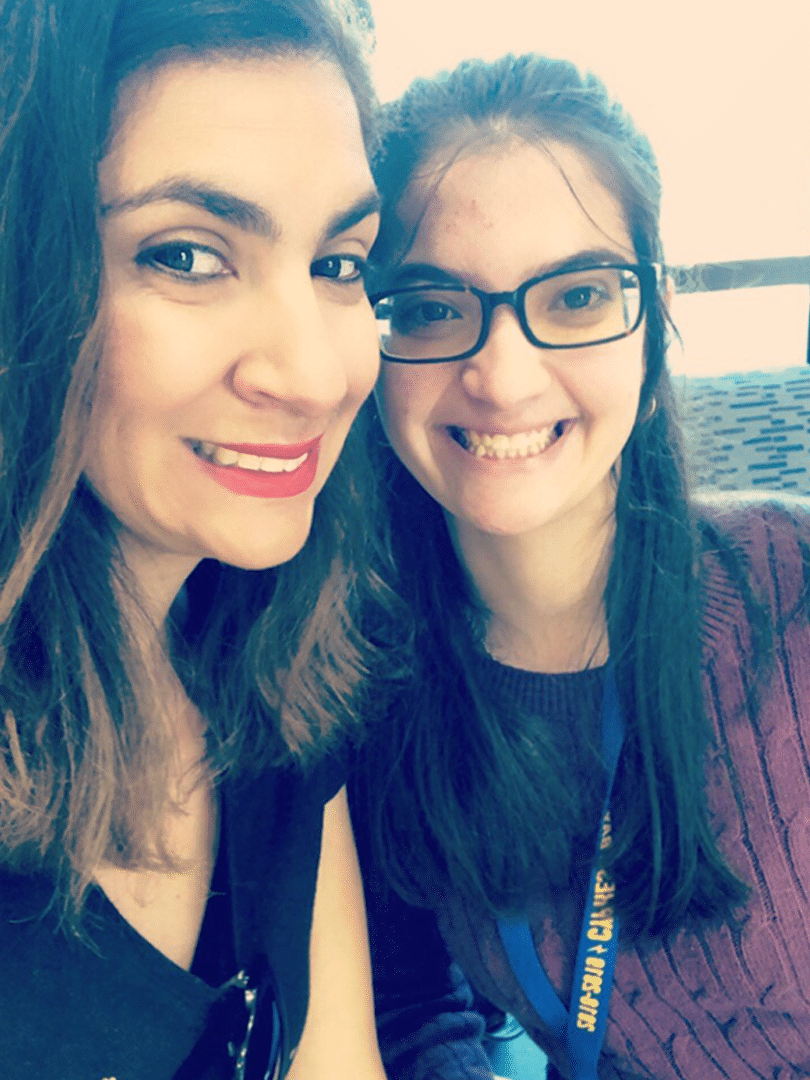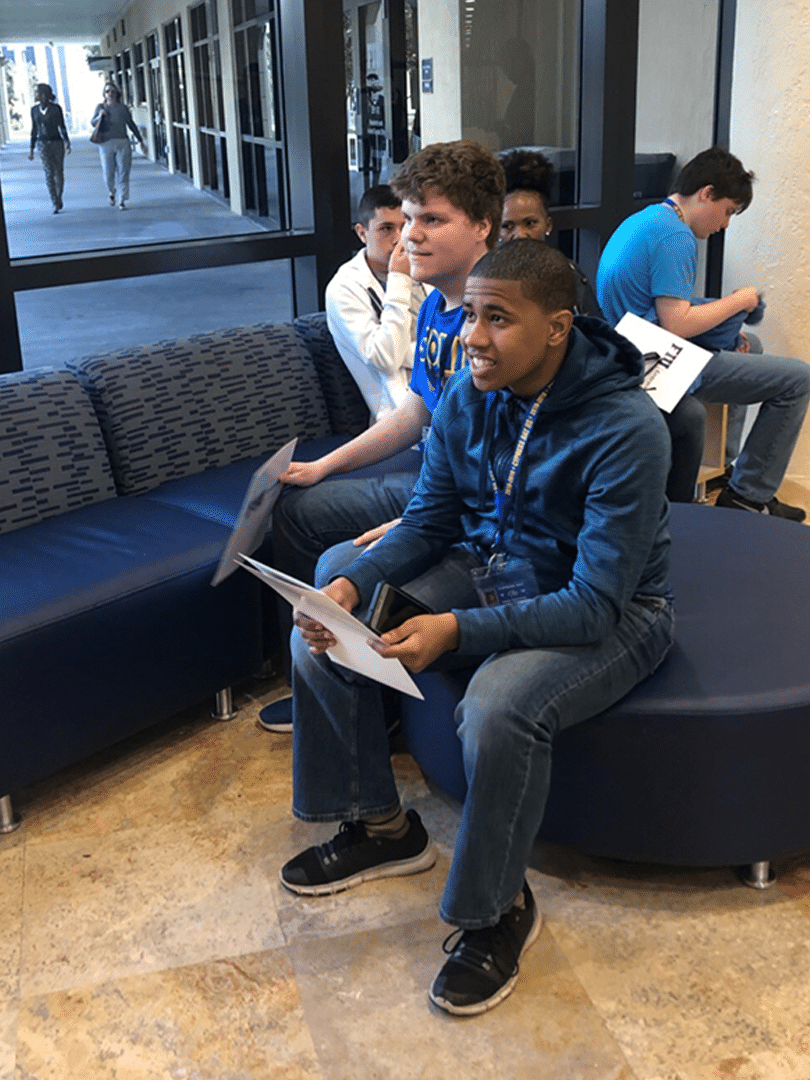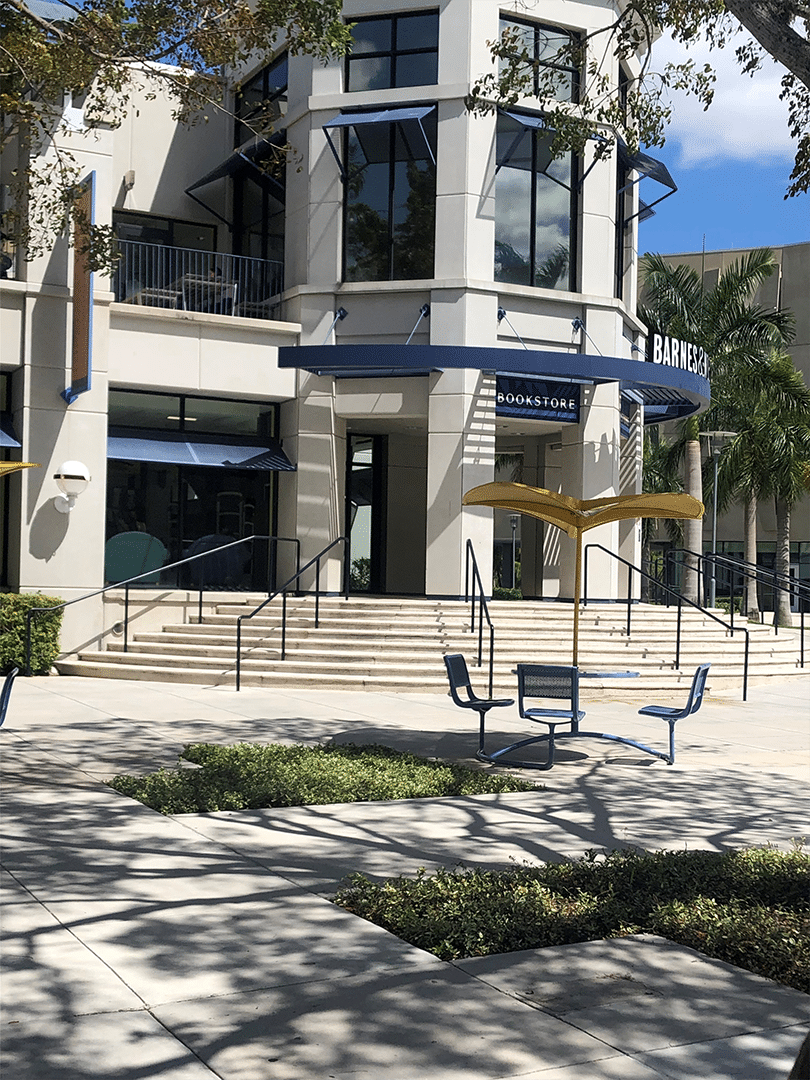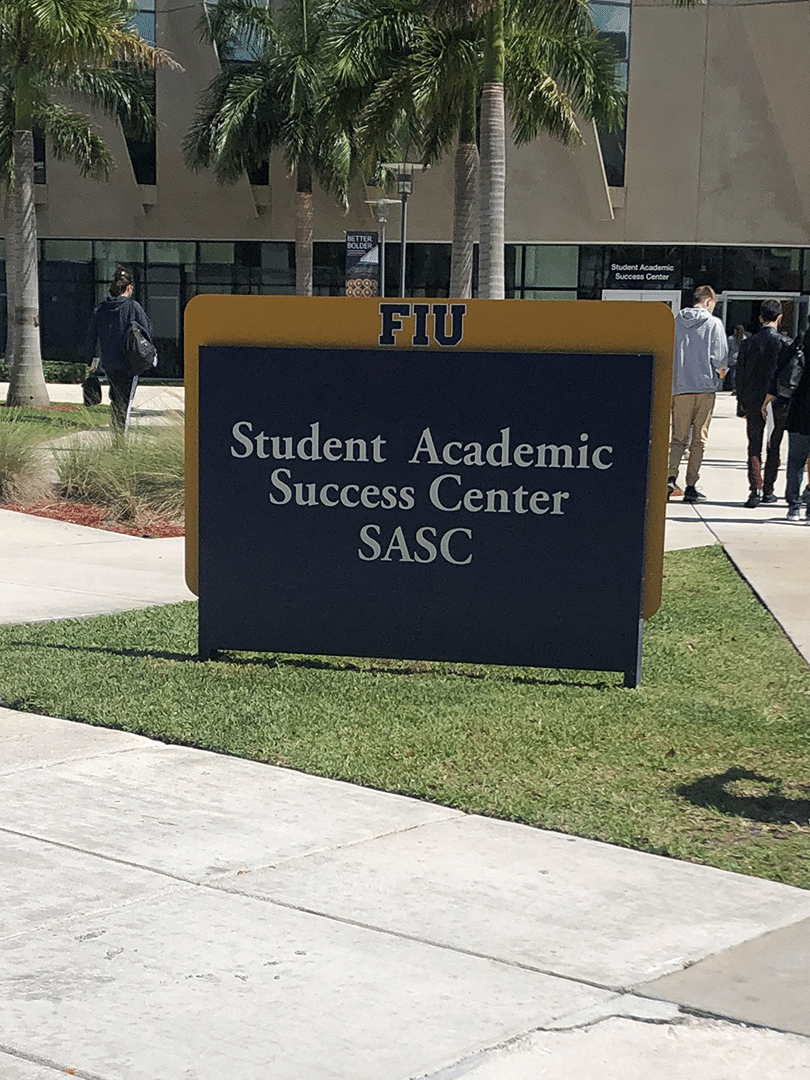Upon our arrival, there were FIU staff members ready to give everyone a tour and information. The group was escorted to the Student Academic Success Center where the One-Stop is located.
The first presenter was Mayte Capo, the Program Manager for FIU Embrace – Plus and FIU Embrace – Life programs, both are programs offered under FIU Embrace. She provided the students with information about these two programs and services that are provided with them.
FIU Embrace – Plus is a Post-Secondary Transition program that is for individuals with Developmental Disabilities (DD). To qualify for these programs, you must have an Intellectual Disability (ID) and be a non-degree seeking student. Someone with Autism may be eligible for the program if they have an Intellectual Disability; however, the department assesses every student and ensures that the student is a fit. The programs provide students with social mentors on and off campus and also provides students with tutors and guidance.
Carla Otiniano, Program Manager of the HDS Foundation, asked if a degree seeking FIU student could transfer into the FIU Embrace program. The answer was only if the student is failing in their academics and are overwhelmed, they would be able to transfer. If a student is succeeding academically, they would not be accepted into the program. She also asked if degree-seeking students can partake in any of the services provided in these programs? The answer was that they do not have the resources or staff to do so. Currently they are able to serve 40 students, which is a small percentage of the student population of FIU. Mayte explained that FIU Embrace is looking into collaborating with other entities to expand the program but at the moment it is not available to other students.
Additional services provided to students are FIU Embrace – Medical and FIU Embrace – Law. FIU Embrace – Medical is a service available to anyone in the community. They aid adults with autism spectrum disorder (ASD), Intellectual Disabilities (ID), and other neurodevelopmental disorders (OND). Services provided are medical doctors, women’s health doctors, behavioral health, and psychiatry. FIU Embrace – Law is also open to the community, and they help families with Wills, Trusts, and Guardianships.
Many of the visiting Cypress Bay students took the opportunity to ask questions. They were definitely engaged and interested.
After Mayte finish her presentation, the group was given a tour by Carolina, an FIU Embrace student. She walked us over to the Park view where she lived and gave a tour of her room. That was the highlight of the trip for many of these students.
Some of the questions that the BRIDGES students asked Carolina were does she have a roommate, if she shared the common area, and what time does she wake up?
After the tour of the dorm room, there was another presentation about the Disability Resource Center (DRC) and their services for degree-seeking students. Julie Alexander explained that they are the primary resource at FIU for students with needs for accommodation such as exams, coursework, housing, and information about the campus. She also explained the benefits of students enrolling with the DRC. Students can learn new ways to handle their academic work. She said that the student doesn’t need to suffer in silence as they can help build those educational gaps. When asked if a student is working with a DRC staff member and the student felt it was not a good fit, what can they do, Julie stated that the student could request to change staff members. She also mentioned it is very common for that to happen and the DRC role is to help the student be successful and find the best fit.
After the presentation, the group went to eat in the Panther dining area. The students sat around and discussed their experiences. Overall, everyone had a great time and gained much information.
This trip was very beneficial to the BRIDGES program. As this program is to prepare them for the transition after high school, this trip to a University puts the lessons learned in the classroom into perspective.
If you would like more information on the HDS Foundation, the BRIDGES Program, or how you can help, visit us online at www.HDSFoundation.org or email info@hdsfoundation.org.


